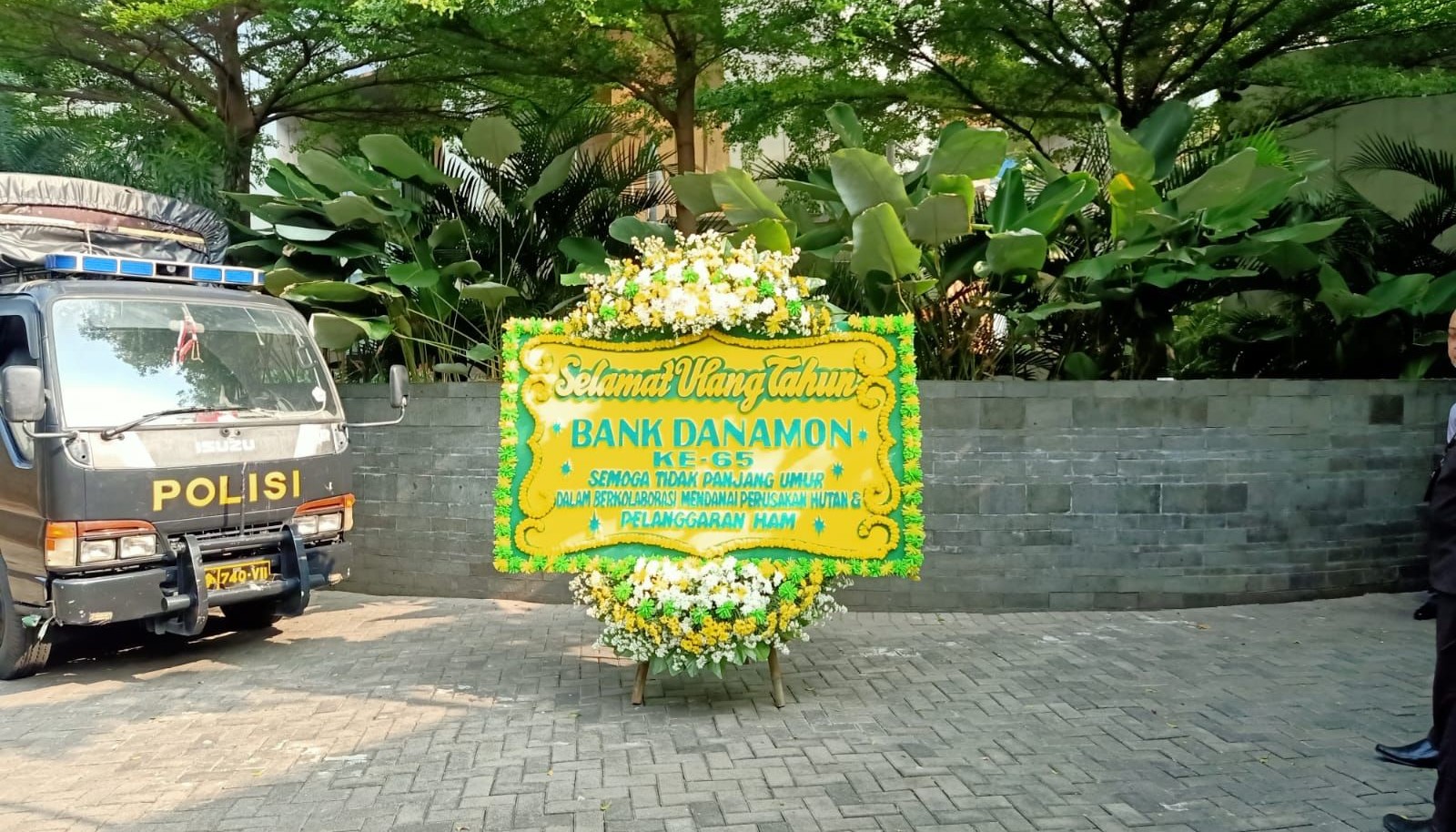News
Civil Society Demands That Danamon Bank Be Also Responsible for Climate Crisis

Civil society sends gifts and flower bouquets to urge Danamon Bank to stop funding forest-destroying companies which are causing climate crisis and human rights violation
Civil society is demanding a progressive role of banks to take more responsibility and play an active role in halting climate crisis. The action follows up the latest Intergovernmental Panel on Climate Change (IPCC) report[1] that predicts that the earth will experience a rise in temperature above the internationally-agreed threshold sooner than expected, which is a code red for humanity. Ironically, 60 of the world’s largest banks have provided up to $3.8 trillion of funding for fossil fuel companies since the Paris Agreement. [2] This uncontrolled funding for the extraction of fossil fuels and infrastructure has been driving the climate crisis and threatening the lives and livelihoods of millions of people.
“We’ve been experiencing the climate crisis; the resulting loss is inescapable; we need banks to play a progressive role as the financiers of forest-risk extractive and agribusiness companies to immediately align their financing with the SDGs and the Paris Agreement,” noted Linda Rosalina, a Transformasi untuk Keadilan (TuK) INDONESIA campaigner, who initiated the #StopDanaMonster petition in the online petition website change.org.
She further added, “It’s high time that large banks transform their conventional financing to sustainable one. Currently, banks can no longer evade responsibility for their reckless financing. Danamon Bank as a subsidiary of Japan’s largest bank MUFG possesses the knowledge and resources to be a more responsbile bank and to play an integral role by committing to preserving forest stands, respecting human rights, and immediately requiring its funded companies to uphold and enforce social and environmental standards through contract agreements and by halting relationships with those ruining our future.”
Banks’ ESG-related safeguard policy should require compliance with the ‘No Deforestation, No Peat, No Exploitation’ (NDPE) standard, and respect for tenurial rights of local communities and indigenous peoples, and ILO labour rights. Danamon Bank, however, has no explicit commitment to NDPE best practice. It has never disclosed ESG risks and its mitigation plans. It has even been found to provide Corporate Loans and Revolving Credit Facilities to the Sinar Mas Group (SMG), a corporate group with a known track record of human rights violations and environmental destruction, involving land grabbing, intimidation, criminalization, and violence.
Financier’s commitment – in this case, of banks – to sustainable financing will make a huge impact on the society. People have already been aware of and experiencing the impacts of climate crisis. They have also been aware of investment risks in considering and choosing which financial products are responsble for sustainable financing commitment. “Through the petition platform change.org, nearly one thousand people have demanded that Danamon Bank halt financing environmentally-destructive companies. This means that a lot of people have concern about Indonesia’s forests. It’s high time that the bank appreciate and listen to this demand,” said Elok Faiqotul Mutia, the Associate Campaign Manager Change.org
By sending gifts and flower bouquets on the bank’s 65th anniversay, civil society expects that the bank can strengthen its slogan to nurture precautionary principle, in particular when selecting business partners and groups which it will collaborate with. In line with the bank’s 65th anniversary slogan “Grow through collaboration,” it is high time that the bank responsibly commit to sustainable financing, that is, by halting financing companies destroying the environment and violating human rights.
[1] Climate Change 2021 The Physical Science Basis, IPCC
[2] Banking on Climate Chaos Report 2021, Rainforest Action Network